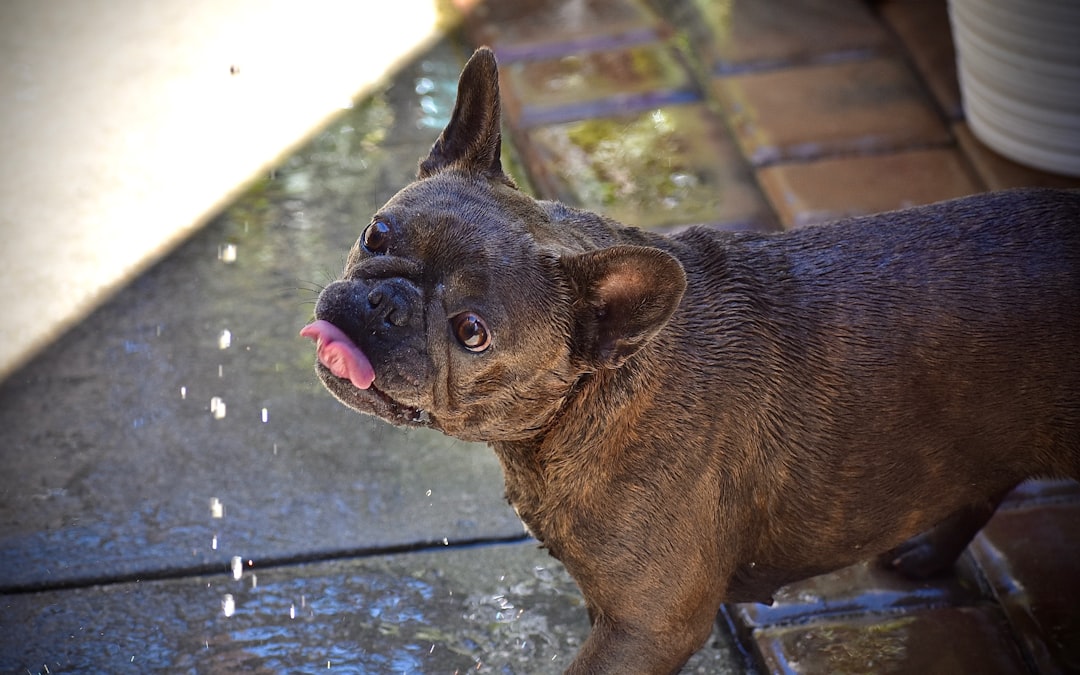Preventing UTIs in Dogs: Essential Tips for a Healthy Canine Bladder
Preventing UTIs in dogs involves promoting frequent urination, maintaining a balanced diet, considering natural treatments, and early detection using urine test strips. Encouraging pet owners to prioritize preventive measures to maintain their dogs urinary health and overall well-being.
Understanding UTIs in Dogs
Urinary Tract Infections (UTIs) in dogs are a common health concern that can affect various parts of the urinary system, such as the kidneys, bladder, and urethra, predominantly caused by bacteria. These infections can lead to discomfort and potential health complications if not addressed promptly. Recognizing the signs and symptoms of UTIs is essential for early detection and intervention. Some common indicators of UTIs in dogs include frequent urination, straining, the presence of bloody urine, and accidents around the house, which can be distressing for both the dog and its owner.
Female dogs are particularly vulnerable to UTIs due to their anatomical structure, specifically their shorter urethra. This shorter urethra makes it easier for bacteria to travel and reach the bladder, increasing the risk of infection. Understanding this higher susceptibility in female dogs emphasizes the importance of preventive measures and close monitoring to maintain their urinary health. Furthermore, early detection and prompt treatment are critical in preventing UTIs from progressing and causing potential health complications. By identifying the signs of UTIs early, pet owners can take swift action to alleviate discomfort and prevent the infection from worsening, ultimately safeguarding their dog’s well-being.
Preventive Measures for UTIs in Dogs
Encouraging your dog to drink more water is crucial in preventing UTIs. You can promote frequent urination by ensuring your dog has access to plenty of clean, fresh water throughout the day. For example, you can incorporate multiple water bowls in different areas of your home and outdoors, making it convenient for your dog to stay hydrated and encourage regular bathroom breaks.
In addition to hydration, a balanced diet and regular exercise are fundamental in maintaining your dog’s overall health, including their urinary system. For instance, incorporating high-quality, well-balanced meals and engaging in regular physical activity can contribute to reducing the likelihood of bladder issues and ultimately lower the risk of UTIs in dogs.
Moreover, grooming practices and maintaining a clean environment are pivotal in preventing infections that can lead to UTIs. Keeping your dog well-groomed, especially around their genital and rear areas, can help minimize the risk of bacterial contamination. Regularly cleaning and maintaining a hygienic living environment for your dog also play a significant role in preventing UTIs.
Diet and Its Role in Preventing UTIs
The impact of diet on reducing the risk of UTIs in dogs is a crucial aspect of preventive care. A balanced and carefully curated diet can play a significant role in promoting overall urinary health and reducing the likelihood of UTIs. For instance, diets with specific properties that help regulate the pH levels of the urine can contribute to creating an environment less conducive to the development of urinary tract infections. This underscores the importance of considering the composition of a dog’s diet as a preventive measure against UTIs.
Moreover, specially formulated diets tailored to address urinary conditions can be instrumental in promoting bladder health and minimizing the risk of UTIs in dogs. These diets are designed to provide the necessary nutrients while also incorporating elements that support urinary tract function. For example, they may contain reduced levels of certain minerals that can contribute to the formation of urinary stones, a known risk factor for UTIs. By addressing these specific needs, these diets actively work towards preventing the onset of urinary tract infections, making them an integral part of a comprehensive preventive approach.
In addition, the incorporation of cranberry extract in a dog’s diet presents a natural and effective way to reduce the risk of UTIs. Cranberry extract has been shown to interact with E. coli bacteria, potentially hindering their ability to adhere to the urinary tract walls and cause infections. This natural remedy serves as an example of how dietary components can actively contribute to preventing UTIs, offering pet owners a non-invasive and beneficial approach to supporting their dog’s urinary health.
Hydration and Urinary Health
Hydration is crucial for maintaining a healthy urinary system in dogs and plays a vital role in preventing UTIs. Adequate hydration helps to dilute urine, making it less concentrated and reducing the likelihood of bacterial overgrowth in the urinary tract. One way to encourage increased water intake is by incorporating wet or canned food with higher water content into a dog’s diet. This not only provides essential nutrients but also contributes to the overall hydration of the dog, promoting urinary health and reducing the risk of UTIs.
Moreover, prescription diets tailored to promote urinary health can be beneficial in preventing UTIs in dogs. These specialized diets are formulated to support the urinary system by controlling the pH levels of urine and minimizing the formation of crystals or stones, which can contribute to UTIs. For instance, diets with specific urinary acidifiers can create an environment that is less conducive to bacterial growth, thereby reducing the risk of UTIs. Additionally, the use of supplements, such as those containing cranberry extract, may aid in preventing UTIs by interfering with the attachment of E. coli bacteria to the urinary tract, mitigating the risk of infection.
In conclusion, prioritizing hydration through appropriate water intake, along with the incorporation of prescription diets and supplements, can significantly contribute to the promotion of urinary health and the prevention of UTIs in dogs. By implementing these preventive measures, pet owners can help safeguard their furry companions from the discomfort and potential complications associated with urinary tract infections.
 Conclusion
Conclusion
In conclusion, there are various preventive measures that can significantly reduce the risk of UTIs in dogs and contribute to their overall urinary health. By implementing these strategies, pet owners can actively support their furry companions in avoiding the discomfort and potential health complications associated with UTIs.
First and foremost, encouraging increased water intake is crucial for promoting frequent urination and flushing out the bladder, which ultimately reduces the risk of UTIs. For example, pet owners can add canned food with higher water content to their dog’s diet to promote urinary health and hydration. By ensuring that their dogs have access to clean, fresh water at all times, pet owners can actively contribute to the prevention of UTIs.
In addition to water intake, maintaining a balanced diet and regular exercise are pivotal in promoting good health and reducing the chances of bladder problems in dogs. For instance, incorporating a specially formulated diet for urinary conditions can play a significant role in supporting bladder health and reducing the risk of UTIs. These diets are designed to address specific urinary issues, thereby providing a proactive approach to preventing UTIs in dogs.
Furthermore, considering natural treatments and preventive supplements such as Pet D-Mannose can be beneficial, especially for dogs with a history of UTIs. This approach can help maintain urinary health and reduce the risk of UTIs, offering pet owners an alternative to traditional antibiotic treatments. By exploring these natural options, pet owners can take proactive steps towards preventing UTIs in their dogs while minimizing the potential side effects of antibiotics.
In summary, pet owners play a crucial role in safeguarding their dog’s urinary health by implementing preventive measures and remaining vigilant for any signs of UTIs. By prioritizing the well-being of their furry companions, pet owners can contribute to a healthier and happier life for their dogs.


